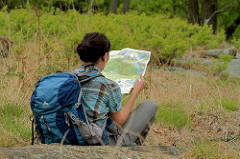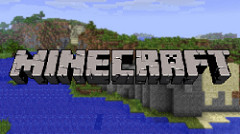With the physical world mapped out, it would be easy to think that future generations may seek their challenges by exploring the far reaches of space. Perhaps they will, but the opportunity to cultivate the fun of exploration can be found right now in a more terrestrial arena. In the third of our posts on the impact of HGIOS 4, we’re interested in the role our young people can, and already do play, adventuring closer to home as Digital Explorers.

Curriculum for Excellence has always encouraged pupil voice and leadership, through its emphasis on peer assessment, pupils setting their own targets, and on schools developing Successful Learners, Confident Individuals, Effective Contributors and Responsible Citizens. The development of pupils’ digital literacy embraces all of the above as well as supporting Literacy and Health and Wellbeing.
Recently, we took part in a Glow TV webconference where we watched some inspirational young people from two Falkirk primary schools as they confidently and knowledgeably described their role as Digital Leaders in their school. The pupils talked about staying safe online, and how they researched apps and their uses, showing what they had learned to other pupils and staff in their schools. Their engagement in and enjoyment of their responsibility was clear, and the skills they were developing were numerous.
Hearing them speak demonstrated the leadership role that young people are capable of playing in their schools and the impact this can have. This was a lightbulb moment for us; previously we had been focused on teachers leading pupils towards digital literacy whereas we now discussed how we could support schools by having the young people themselves as Digital Leaders. From there we discussed the adventurous mindset that we wanted all young people to have in school, regardless of their level of digital literacy, and envisioned having Digital Explorers across all schools. For us, the reality of creating Digital Explorers can only flourish against a background in which all pupils feel able to create, innovate, and explore in a supportive environment.
But where do we start? There is perhaps a misunderstanding about what it means to support digital competencies across the curriculum. We’re not talking about coding and programming, although in economic terms these skills are essential for Scotland’s future and should be nurtured through the STEM curriculum. We’re talking about the ability to operate effectively in a digital world. This is something that we can both do, despite the lack of formal education in the area. Both of us are regarded by our peers as being ‘good with computers’, but neither of us has any high level training or background in Computing Science. What we do share, though, are several attributes that make us appear to know what we’re talking about, including:
- An understanding of how hardware is set up on a standard computer (e.g. how to set up a printer/project to a screen etc.).
- The self-taught knowledge of how to operate standard software programs, and how to transfer those skills to new and unfamiliar tools.
- A willingness to try and experiment; if we don’t know how to do something – we play with the program until we get it to do what we want. We’re not scared to make mistakes. We’ll take a calculated risk, safe in the understanding that we can probably rectify any mistakes later.
- The ability to recognise when something looks a bit ‘dodgy’ – knowing when something is too risky or seems too good to be true.
- Knowing how to get help – it’s very unlikely that any computer-based problem we come up against has only ever happened to us, and the wonderful world wide web is filled with help if you know where – and how – to look. When someone approaches us for help, nine times out of ten we don‘t know the answer – but we will use the tools we have to find out, and in doing so build up our own store of knowledge.
All learners don’t need to be programmers. All learners do, however, need to be able to evaluate and take risks, transfer skills and actively seek solutions to problems. And to be honest, teachers need these skills as much as the learners. It’s all too easy to be a passive recipient of technology and throw up our hands at the first glitch or bug, but the more we accept that we often can find our own solutions, the more free we are to begin to create and innovate.
We should also remember that the idea that learners are Digital Natives isn’t accurate. No one is born with the innate understanding of how to deal with technology; instead, most young people have been exposed to technology from a young age and, by using a more instinctive ‘play’ approach, are experimenting with digital skills without that fear of ‘breaking’ the computer. Schools need to identify and fill gaps in learning, and work on the assumption that while pupils may have the technical skills needed to operate digital technology, they may not yet understand the social conventions and cues needed to be a responsible digital citizen.
Our vision for Digital Explorers is one where pupils can consistently demonstrate the following:
- They have the ability to work across a range of platforms as they understand commonalities of approach and can apply learning in new and unfamiliar settings.
- They can ‘read’ digital texts and understand how to make best use of them.
- They show an understanding of the audience and purpose of different forms of media and are able to select the appropriate tool for the job.
- They can collaborate with their peers and feel free to actively create rather than being restricted by a set task.
- Possibly most importantly, they can safely navigate their way through technologies and recognise not only when they have strayed off the proverbial path, but also be able to make a judgement about whether it is a good idea to do so.
An example of learners independently exercising some of these skills can be found in Minecraft. For those not, like us, living with a mini-expert and who may not yet have had the pleasure, it is a game, available on multiple platforms, which has very basic graphics and in essence is a bit like playing with Lego on a computer. There are different modes but

the most straightforward is Creative where you cannot die, and don’t need to work to stay fed, watered and safe from the various monsters. In this mode you have unlimited resources so the possibilities are endless. So what do you do…? Whatever you want. In Creative mode you set your own challenges, create freely and then once you have achieved whatever the goal is that you’ve set yourself, you set another, and so on. Young people aren’t rewarded with badges or trophies; they don’t unlock the next level. It is up to them to be motivated and to use their imaginations accordingly. Minecraft is interesting as many pupils are playing with it outside school and self-teaching, or getting tips from each other and/or from YouTube videos created by other players. If we use Minecraft as an example of how to encourage digital literacy, we can see that it provides opportunities to collaborate, to problem solve, to set targets, to create, and to encourage children to take risks and think strategically. It develops digital literacy as it opens lots of possibilities to explore and also have a huge amount of very rewarding fun. Minecraft is just one example of how we can look beyond traditional learning and teaching methods to find ways to develop those essential skills that today’s children will need as adults.
As well as engaging creatively with games like Minecraft, today’s children soon develop fluency in using social media to communicate with their peers, but they are not learning how to adapt these communication skills when they join the workforce, and they perhaps don’t consider the ‘self’ they will be projecting beyond childhood and their teenage years. This is another area where schools need to help pupils to develop. Digital Explorers must be able to navigate in and negotiate both the physical and digital worlds while being mindful of the self they present. Understanding the norms and rules of these worlds is essential. And that’s where we come in…
Next week, we’ll have a look at what teachers can do to support digital learning, and what help they need to be able to do this with confidence.

One thought on “Digital Explorers”